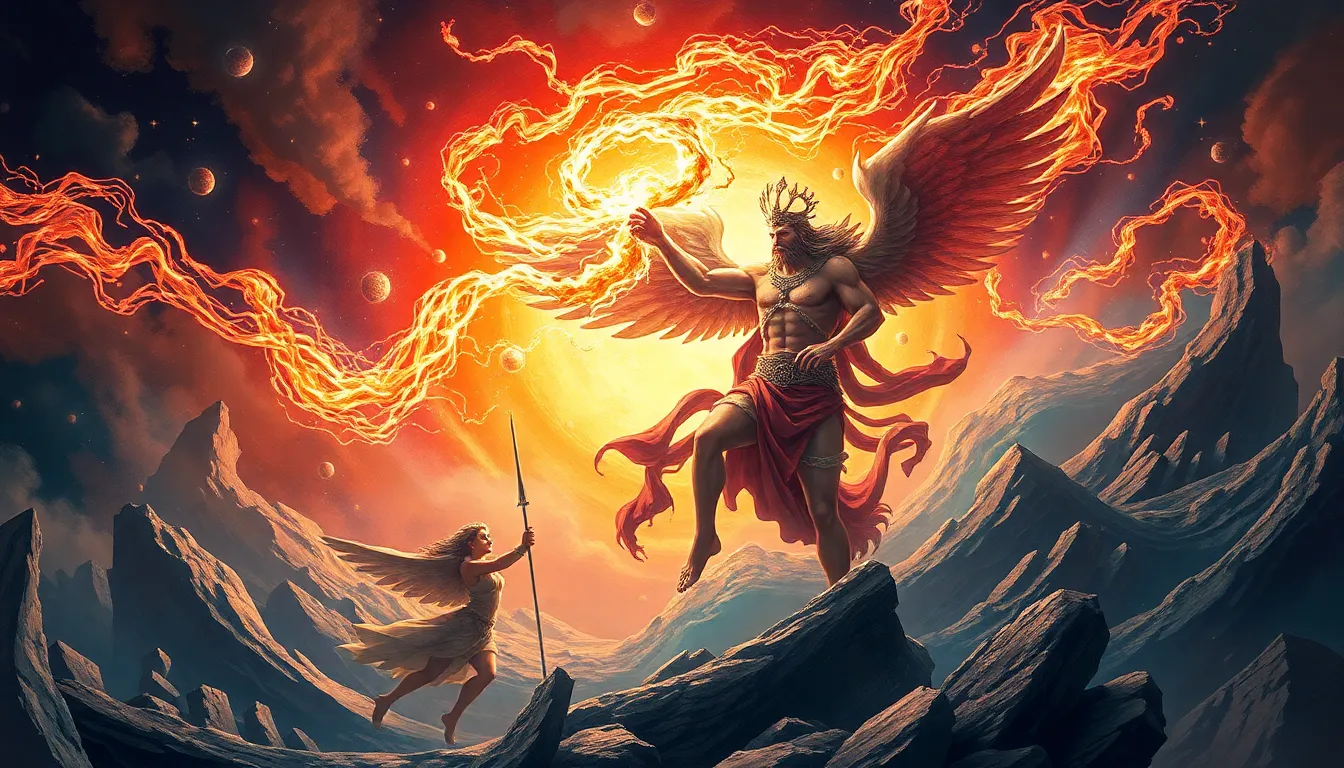Divine Retribution and the Cycle of Vengeance in Greek Legends
I. Introduction
In Greek mythology, divine retribution is a central theme that illustrates the consequences of human actions through the lens of the gods’ will. The ancient Greeks believed that the gods were not only powerful beings but also enforcers of justice, punishing mortals for their transgressions.
Vengeance plays a crucial role in shaping narratives, driving characters to act in ways that often lead to tragic outcomes. The stories of Greek mythology are rife with themes of retribution, justice, and the endless cycle of vengeance that ensnares families and heroes alike. This article explores the significance of these themes through various myths and characters.
II. The Concept of Divine Retribution
Divine retribution, often referred to as “nemesis,” is the punishment inflicted by the gods upon those who commit hubris or act against divine law. In ancient Greek beliefs, this concept was significant as it represented the moral order of the universe.
- The Role of the Gods: The gods played an active role in enforcing justice, ensuring that balance was maintained in the mortal realm.
- Examples of Punishment: Myths abound with examples of divine punishment, such as:
- Arachne: Punished for her hubris in challenging Athena to a weaving contest.
- Niobe: Her pride led to the death of her children at the hands of Apollo and Artemis.
III. The Cycle of Vengeance
The cycle of vengeance refers to the ongoing reprisals between families or individuals that escalate into a series of retaliatory actions. This cycle often leads to tragic outcomes, as each act of vengeance begets further conflict.
- Perpetuation of Conflict: Vengeance can become a vicious cycle, with each generation seeking to avenge their predecessors.
- Notable Examples: Some of the most famous cycles of vengeance include:
- The feud between the House of Atreus and the House of Pelops.
- The conflict between the Theban royal family, illustrated through the tragedies of Oedipus and his descendants.
IV. Case Study: The House of Atreus
The House of Atreus is one of the most tragic families in Greek mythology, embodying both divine retribution and the cycle of vengeance. The saga begins with Tantalus, whose heinous crime of serving his son to the gods sparked a curse upon his lineage.
- Key Events: Major incidents in this saga include:
- The murder of Agamemnon by his wife Clytemnestra, seeking vengeance for the sacrifice of their daughter.
- The eventual death of Clytemnestra at the hands of her son Orestes, who sought to avenge his father.
The consequences of this cycle were catastrophic, leading not only to the destruction of the Atreus family but also impacting their allies and enemies, demonstrating how vengeance ripples through society.
V. The Role of Fate and Destiny
In Greek mythology, fate is often intertwined with divine retribution, creating an inescapable web that characters cannot easily escape. The belief in destiny suggests that the gods may set certain paths for mortals, but their choices still lead to divine punishment.
- Interaction with Divine Retribution: Characters often find themselves caught between their desires and the will of the gods.
- Examples: Notable characters trapped in this web include:
- Oedipus, whose attempts to defy fate only lead him closer to his tragic end.
- Agamemnon, whose choices result in devastating consequences for his family.
VI. The Tragic Hero and Divine Retribution
The tragic hero is a prominent figure in Greek mythology, defined by their noble stature, tragic flaw, and ultimate downfall. Divine retribution plays a pivotal role in their journeys, often leading them to face the consequences of their actions.
- Characteristics: Tragic heroes typically possess:
- A tragic flaw (hamartia) that leads to their undoing.
- A moment of realization (anagnorisis) where they understand their fate.
- Analysis of Heroes: Key tragic heroes include:
- Oedipus, whose quest for truth leads to his ruin.
- Achilles, whose pride and anger drive him to tragic consequences during the Trojan War.
VII. Lessons and Morals from Greek Legends
The myths of divine retribution and vengeance convey profound lessons about justice, morality, and the human condition. They reflect the complexities of human emotions and relationships, highlighting the dangers of pride and the inevitability of retribution.
- Reflections on Justice: Greek legends serve as a reminder that actions have consequences.
- Implications on Society: The tales illustrate how vengeance can lead to societal destruction.
- Contemporary Resonance: These themes remain relevant today, as societies grapple with issues of justice and retribution.
VIII. Conclusion
In summary, the themes of divine retribution and the cycle of vengeance are deeply embedded in Greek mythology. Through the tales of gods and heroes, we discern the moral fabric that governed ancient Greek society.
These stories not only entertained but also cautioned against hubris and the cyclical nature of vengeance, leaving a legacy that endures in modern storytelling. As we reflect on these themes, we find that the complexities of justice and retribution continue to resonate in our contemporary world, reminding us of the timeless human struggle with morality and consequence.




